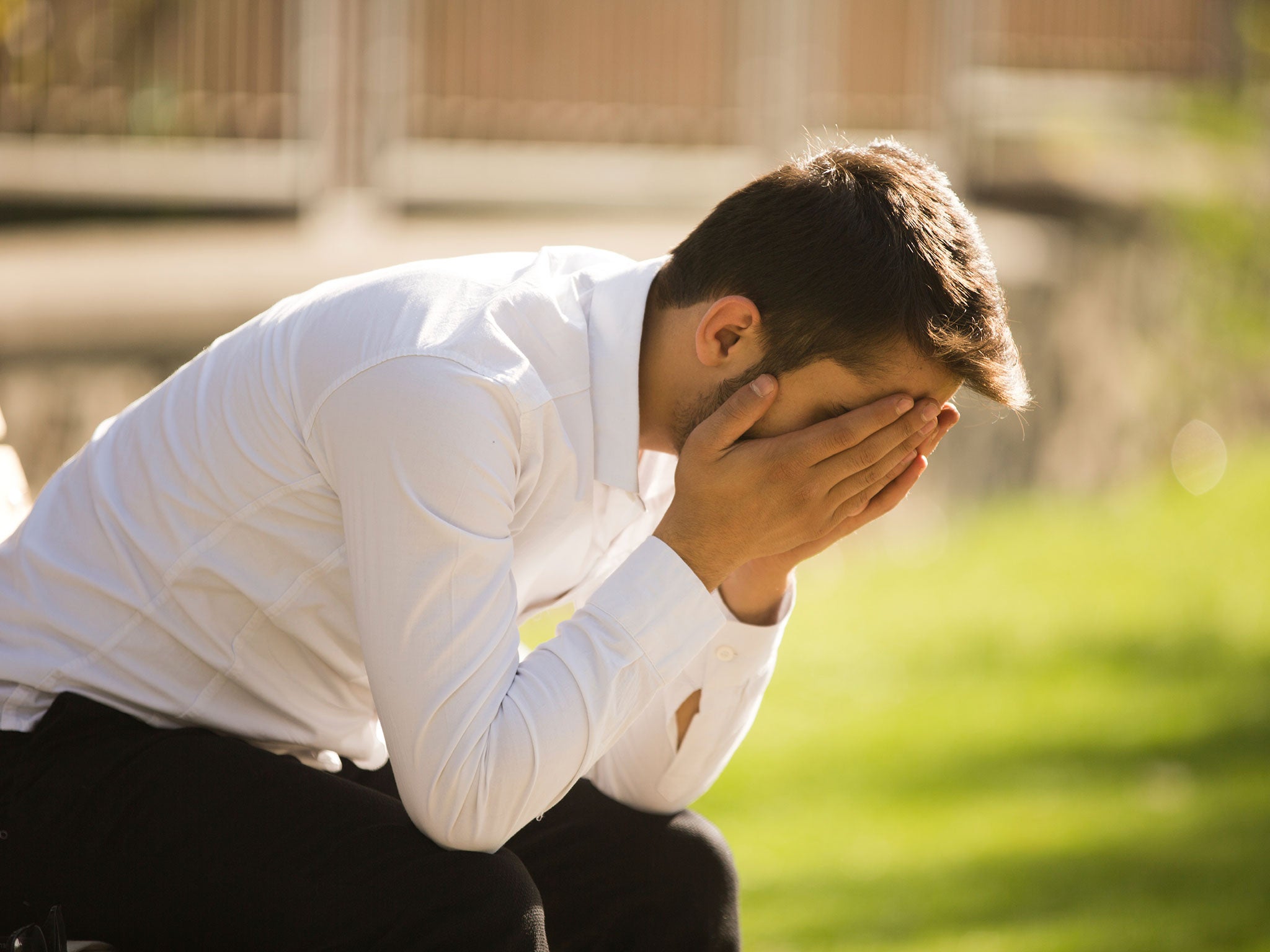Young gay and bisexual men 'six times more likely to attempt suicide than older men', research finds
It is thought that this may be because younger gay and bisexual men are also more likely to have lower incomes and employment security than older men, as well as to come out at a much younger age

Your support helps us to tell the story
From reproductive rights to climate change to Big Tech, The Independent is on the ground when the story is developing. Whether it's investigating the financials of Elon Musk's pro-Trump PAC or producing our latest documentary, 'The A Word', which shines a light on the American women fighting for reproductive rights, we know how important it is to parse out the facts from the messaging.
At such a critical moment in US history, we need reporters on the ground. Your donation allows us to keep sending journalists to speak to both sides of the story.
The Independent is trusted by Americans across the entire political spectrum. And unlike many other quality news outlets, we choose not to lock Americans out of our reporting and analysis with paywalls. We believe quality journalism should be available to everyone, paid for by those who can afford it.
Your support makes all the difference.Young gay and bisexual men are six times more likely to attempt suicide than older men, new research has suggested.
The study, conducted by the London School of Tropical Medicine and funded by LGBT charity Stonewall, is based on analysis of 5,799 men living in the UK and has revealed a stark generational divide in the experiences of gay and bisexual men.
It found that gay or bisexual men under the age of 26 are twice as likely to suffer from depression or anxiety and six times as likely to have attempted suicide or self-harm as men over the age of 45.
This was particularly pronounced among men from low income backgrounds or ethnic minority groups. Men with low levels of education were found to be twice as likely to experience a mental health problem as those with a degree education, thought to be in part due to wider social dynamics influencing educational attainment such as class, ethnicity and income rather than education attainment in itself.
While it has long been established that LGBT communities suffer from considerably more mental health issues than other social groups, limited research has been conducted into how age affects their experiences. Indeed, it has previously been assumed that mental health issues may decrease among younger gay and bisexual men as they experience less stigma than older men due to changes in cultural attitudes and lesser discrimination.
The report’s authors suggest that one element of the findings may be: “older men are able to cope better with homophobia and that homophobia is more prevalent in the lives of younger men” as older men are more likely to have been older and therefore more emotionally mature and well supported when they came out than men in subsequent generations who are more likely to come out at earlier ages. It is also possible that older men are more likely to be better supported or privileged in other ways including education, income and employment.
Lead author Dr Ford Hickson from the London School of Hygiene and Tropical Medicine said: “Mental health is one of the biggest health challenges facing the world today and can affect people from all walks of life. We know minority groups are at higher risk of poor mental health than the heterosexual majority, however the mental health differences within sexual minorities is unclear.”
“Our study showed that among gay and bisexual men, age and ethnicity had a significant impact on mental health, as did income education. This is possibly because men are better able to cope with homophobia the older they are, or if they are relatively privileged in other areas of their lives.”
This is possibly because men are better able to cope with homophobia the older they are, or if they are relatively privileged in other areas of their lives
April Guasp, Head of Research at Stonewall, said: “We’re really pleased to see this further in-depth analysis of mental health issues faced by gay and bisexual men. It’s known that a range of factors can increase risk of poor mental health among the population in general and the same holds true for gay and bisexual men. This study contributes to better understanding of the specific risks within LGBT communities and will hopefully lead to more targeted health interventions.”
Research has suggested that LGBT people are considerably more likely to have a mental health problem than cisgender or heterosexual people. Among the general population varying figures suggest that suicide attempt rates are around 4 per cent, increasing to 20 per cent for LGB people and over 40 per cent for transgender people. This is thought to be due to direct discrimination as well as indirect contributory factors such as LGBT people being more likely to be homeless, unemployed or to be victims of physical or sexual violence. It is thought that this is particularly pronounced for transgender people as they can face severe discrimination and social ostricisation due to prevailing transphobia and a number of financial barriers in accessing healthcare related to gender reassignment.
Join our commenting forum
Join thought-provoking conversations, follow other Independent readers and see their replies
Comments